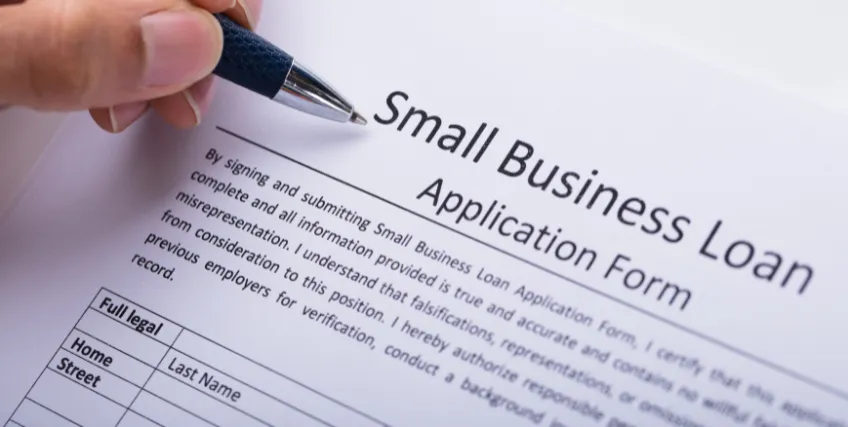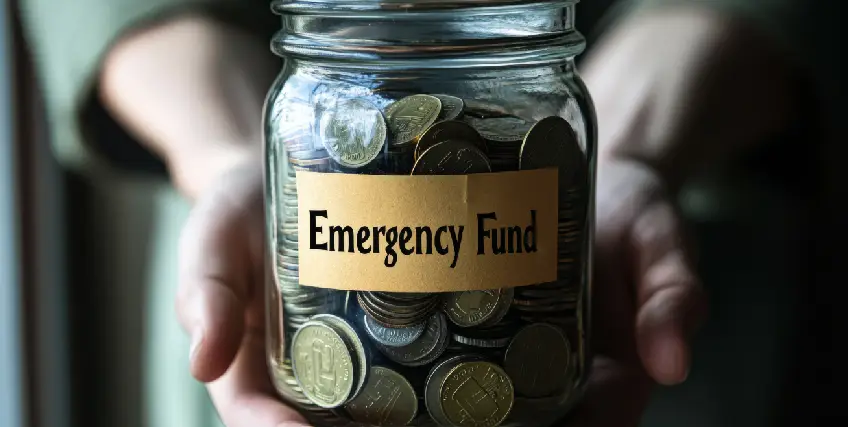What Texas Small Businesses Need to Know About Emergency Loans
October 29, 2025 | Last Updated on: October 29, 2025

Texas has been hit hard in 2025. Wildfires scorched thousands of acres. Tornadoes ripped through towns. Floods left many communities underwater. For small business owners, the damage has been personal and financial.
Stores, equipment, and inventory were destroyed. Operations were shut down. And for many, insurance doesn't cover everything. This is where emergency relief programs come in.
If you run a small business in Texas, you may qualify for support through SBA disaster loans and other disaster assistance programs. These low-interest loans can help you repair damage, pay expenses, and keep your business alive.
This guide breaks down everything you need to know. From who qualifies to how to apply, we’ve covered it all. Whether you’re in Austin, Houston, or a rural town, this article is for you.
If you’re searching for Texas loans for small business, this is a great place to start.
What Are Emergency Loans for Small Businesses?
Emergency loans are financial tools for businesses impacted by a natural disaster. The U.S. Small Business Administration (SBA) offers several options under its disaster assistance programs. These include physical disaster loans, economic injury disaster loans (EIDL), and special local programs.
SBA disaster loans are not grants. But they come with low-interest rates and long terms. They can help you repair buildings, replace inventory, and cover operating expenses. If your area has a disaster declaration, you may qualify.
There are also state-supported loans designed for startups. These small business startup loans in Texas offer early-stage recovery funds for new businesses affected by a major disaster.
Texas also supports regional recovery through community-based programs. For example, programs that distribute small business loans in Houston TX are tailored for urban centers impacted by floods and tornadoes.
SBA programs are open to businesses of all sizes, including private nonprofit organizations. Some loans can also be used by homeowners and renters who run a business from home.
These Texas loans for small business are part of a coordinated response that includes FEMA, usa.gov, and local disaster agencies.
Who Is Eligible in Texas?
To qualify for an SBA emergency loan, your business must be located in a declared disaster area.
Eligible businesses include:
- Small businesses
- Private nonprofit organizations
- Agricultural cooperatives
- Ranchers and home-based businesses
You must show you were financially impacted by the natural disaster. This could mean physical damage, lost revenue, or increased operating expenses. You’ll need to provide documentation.
Texas has added support for underserved communities. This includes specific programs for minority business loans in Texas. These are aimed at helping historically underfunded communities rebuild.
Newer businesses can also apply for Texas loans for small business. Even if you’ve been open for less than a year, there are options, if you don’t want this type of loans.
If you are based in cities like Austin or Houston, you can explore local programs too. Many organizations offer Texas loans for small business through city-run recovery efforts.
The SBA also allows some homeowners and renters to apply if their business property was damaged.
These programs aren’t just for big cities. Rural and tribal areas are also covered. Just make sure you check your county’s eligibility status.
How to Apply: Step-by-Step Process
Applying for a disaster loan starts at the SBA’s Disaster Loan Assistance site. You can also visit a Disaster Recovery Center in person.
Step 1: Check that your county is in a declared disaster area.
Step 2: Gather financial documents. This includes tax returns, income statements, and proof of property damage.
Step 3: Register at the SBA website. Fill out the SBA disaster loan forms carefully.
Step 4: Track your application. Respond to any emails or calls quickly.
If you are based in southeast Texas, especially around Houston, local offices also process small business loans in Houston TX. These are often part of regional funding pools.
For first-time applicants, local economic development offices are helpful. They guide business owners through Texas loans for small business applications.
Applications are reviewed within 2-6 weeks. The sooner you apply, the better.
Make sure to mention if you are applying under any minority business loans in Texas or small business startup loans in Texas programs. It can affect your evaluation.
Types of SBA Emergency Loans Available in Texas
SBA offers multiple loan types depending on your need:
1. Business Physical Disaster Loans
Used to repair or replace damaged real estate, equipment, inventory, or machinery.
2. Economic Injury Disaster Loans (EIDL)
Helps cover daily costs when you can’t operate normally. Think of it as a cash flow bridge.
3. Mitigation Loans
You can add funds for prevention measures when rebuilding like elevating structures.
Each of these falls under the umbrella of Texas loans for small business. They are available to private nonprofit organizations, cooperatives, and home-based businesses as well.
Programs like EIDL are especially useful for covering working capital and essential operating expenses.
Cities such as Austin and Houston have specialized versions of these loans. They coordinate with FEMA and SBA to tailor aid. For instance, small business loans in Houston TX may offer additional grace periods or fee waivers.
Interest rates are typically lower in comparison to other business loans. Terms can go up to 30 years. This makes them more affordable than conventional loans.
If you qualify under minority business loans in Texas, you may also receive additional mentorship or outreach support.
These programs are designed to offer fair, fast disaster relief.
Understanding Loan Terms and Rates in Texas
Disaster loans come with unique terms. That’s why it’s important to compare interest rates. When it comes to small business loans, Texas rates are very competitive.
Here’s what to expect:
- Interest rates as low as 375% for nonprofits and 4% for small businesses
- Terms of up to 30 years
- No prepayment penalties
Your rate depends on your credit, ability to repay, and insurance coverage.
Programs under Texas loans for small business often waive fees and allow for deferred payments.
Compared to private lending, interest rates in Texas are more favorable for recovery.
Don’t confuse short-term emergency relief with high-interest products. SBA loans are designed to support real disaster recovery.
Some regional programs, especially small business loans in Houston TX, may include grants or interest subsidies.
It’s always good to consult your local Small Business Development Center before signing anything. They provide neutral advice.
Regional Focus: Houston and Beyond
Houston was one of the hardest-hit cities in 2025. As a result, city officials launched expanded recovery programs. These include grants, technical support, and Texas loans for small business.
The Houston Business Recovery Center has processed hundreds of small business loans in Houston TX already. These target storefront businesses, service providers, and logistics firms.
Other areas like Austin and Corpus Christi also have similar efforts. Local chambers are working with SBA disaster assistance to streamline paperwork.
If you are looking for minority business loans in Texas, Houston programs often include designated quotas and support teams.
It’s also worth checking your county's official gov website. Many have listed their recovery resources publicly.
Wherever your business is, don’t assume help is out of reach. These resources are for disaster survivors, regardless of size or sector.
Special Help for Startups and Minority-Owned Businesses
Startups often feel left out in recovery programs. But Texas offers specific options for new businesses.
If you opened recently, you could apply for small business startup loans in Texas. Some of these are part of disaster response plans.
The same goes for minority business loans in Texas. These programs offer targeted funding and mentorship. They focus on inclusion in disaster rebuilding.
Local Disaster Recovery Centers and Small Business Development Centers can point you in the right direction.
These Texas loans for small business aren’t limited to major cities. Rural business owners can qualify too.
Having less than a year of tax history doesn’t automatically disqualify you.
The key is to show eligibility, intent to continue, and proof of impact.
Conclusion
Natural disasters can bring even the strongest businesses to a halt. But rebuilding is possible, with the right information and timely action. This guide was created to help you understand the emergency loan options available for small businesses across Texas.
Whether you're seeking Texas loans for small business to recover from damage or trying to keep cash flow steady through an economic injury disaster loan, the key is to start early. Support exists for all types of businesses, including minority-owned and newly formed startups. Explore both federal and city-led programs that offer fair terms, reliable support, and real relief.
Don’t underestimate local assistance. From Houston to smaller counties, tools are available that go beyond what the SBA provides. And always pay attention to loans rates to ensure you’re choosing the most cost-effective path.
Recovery won’t be instant—but with the right loan, resources, and plan, it’s within reach. Let this be the first step toward getting back to business.
FAQs on Texas Loans for Small Business
How do I know if my business qualifies for disaster loans?
Your business must be located in a declared disaster area, and you must show that your operations were directly affected. Visit sba.gov to confirm eligibility. Startups and minority-owned businesses can also apply under small business startup loans in Texas or minority business loans in Texas programs.
Can I apply for both SBA loans and local Texas programs?
You can combine federal and local aid. For instance, many businesses apply for SBA loans and also seek Texas loans for small business or grants from local recovery funds. This combined approach can ease recovery
Do minority-owned businesses have special options?
There are dedicated minority business loans in Texas that offer financial support, mentorship, and additional application guidance. These are meant to help underserved business communities recover faster.
Can home-based or rural businesses apply for emergency loans?
As long as they operate in a declared disaster area and meet basic eligibility, they can apply for Texas loans for small business. Rural operators and homeowners with business losses can seek both SBA and local funding.
Are new businesses eligible for emergency loans?
Even businesses open for less than a year may qualify under small business startup loans in Texas, provided they can show financial loss and a plan for recovery.




